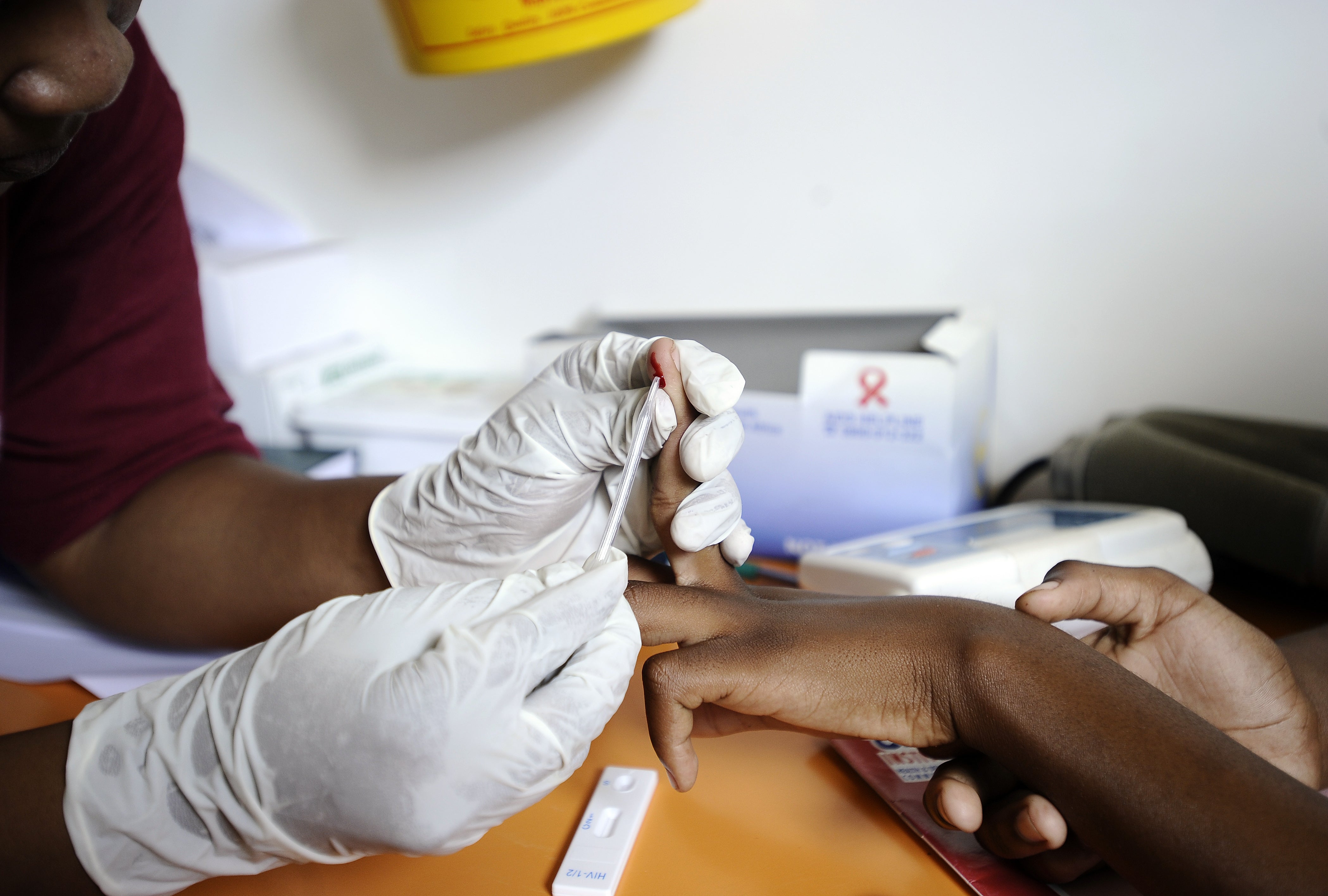
In July 2014, in Kenya an HIV-testing and counseling services (HTS) counselor confirmed that I had HIV, initiating me into a new world of stigma and discrimination. All I could do was accept my diagnosis and live one day at a time, because I thought I could drop dead any day. I was 17, in a boarding school in Africa and I had lots of questions. How did I acquire the virus? How will I live with this virus? Who will buy my medicine if there is any? Why me?
At boarding school, the school nurse and the teachers were my only parental figures. However much they tried, they could not provide the kind of support I needed at the time. They were paid to talk about prevention—no one talked about how to live with HIV, despite there being 1.4 million people in Kenya who are also living with the virus. My teachers still taught us that HIV was a death sentence and that we all would get it if we had sex before marriage. My HIV status became a moral compass: my schoolmates labeled me as promiscuous, saying that I got the virus from being sexually active at an early age.
I still haven’t found answers to all the questions that arose with my diagnosis, but one was answered quickly by my doctors. I started on my lifesaving medication almost immediately—I had a very low white blood cell count. As a teen, I struggled with taking these pills. I frequently forgot about them and sometimes I was ashamed to take them in public due to fear of being stigmatized. The worst part was the side effects: I was constantly exhausted and unable to keep up with my school schedules.
Thankfully, I was not alone. I had a friend, Peris, who was in her second year of secondary education and was also living with HIV. We supported each other through the illness in ways my school did not until I successfully sat for my final examinations.
A few months after my exit, I received some bad news: Peris had died. She was barely 15. She had no form of support after I had left, and I had never gone back to see her. I was so bitter with myself for failing my friend, so I decided to come out publicly about my HIV status to eradicate stigma. Since then, it has been a journey of representing and supporting adolescents and young people living with HIV in key decision-making spaces at the country level and globally.
Many diverse young people are living with HIV in school environments and continue to experience challenges like mine and Peris’. They do not have access to the support that they require to live positively and to improve their health and education outcomes, and in some cases, we lose some like Peris. I wanted to change that.
After six years of advocacy, I got the opportunity to do more. In 2021, after graduating from secondary school and in my final year in university, I worked with the Global Network of Young People, Y+ Global, which brings together and supports young people living with HIV globally to revise the positive learning guide. Positive learning is a guide that was first published in 2011 by UNESCO and the Global Network of People Living with HIV (GNP+) to meet the needs of learners living with HIV in education settings. A decade later and with the emergence of strong youth networks, I and my colleagues from the Global Network of Young people living with HIV(Y+ Global) revamped the guide into a set of recommendations addressing the evolving needs of learners living with HIV while also recognizing diversity and advances in the HIV response. The recommendations are packaged in seven key areas as guided by young people, including:
- comprehensive sex education
- treatment care and support
- confidentiality and sharing one’s status
- ending HIV-related stigma and discrimination
- sexual and reproductive health and rights
- mental health and psychosocial well-being
- creating an inclusive and health-promoting learning environment
The new guide—Positive Learning: How the education sector can meet the needs of learners living with HIV—is for all stakeholders who want to improve the quality of life for learners living with HIV. This guide can serve as a tool to change national policies and curricula in countries, as a guide for schools or teachers looking to build a more inclusive and supportive environment for learners living with HIV, or as an advocacy tool for civil society organizations and youth activists focusing on addressing challenges that are faced by learners living with HIV. It is my hope that more people will understand that you can live a long life with HIV, and that having proper support in school is critical to a good quality of life.
I have experienced living with HIV in education settings only for a few months, and the experience has stuck with me for all these years. Now I am pursuing my master’s degree in gender, women and development studies, and I am glad that it is not too late for me and other learners living with HIV to study in supportive and safe environments free of stigma and discrimination. I shared the recommendations brief with my institution and department, and they committed to mainstreaming the guide in the institution, as we all matter.
We can, and should, do right by learners living with HIV. We can have long lives ahead of us. We deserve the highest quality of life and every opportunity to succeed.
This is an opinion and analysis article, and the views expressed by the author or authors are not necessarily those of Scientific American.
